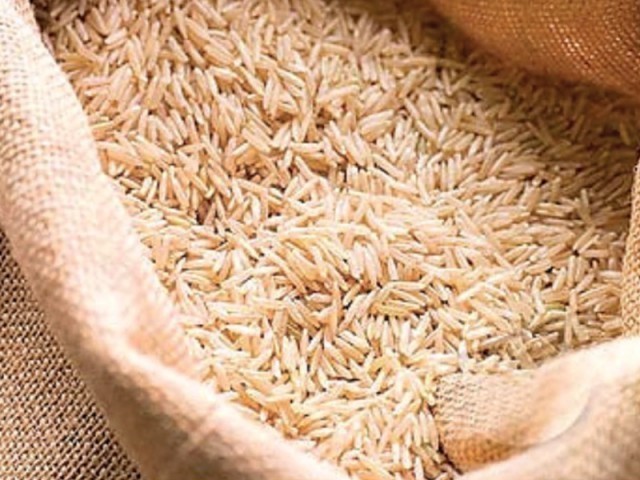KARACHI: After a ban imposed by the European Union (EU) on the import of Indian basmati rice, there is a great opportunity for the Pakistani basmati exporters to capture the rice market in the European countries.
The EU imposed a ban on the import of Indian basmati rice in 2017, by reducing 100-fold the import tolerance level of ‘Tricyclazole’. It is not possible for the Indian farmers to bring down the pesticide level to nearly zero all of a sudden, the sources said.
“It is a great opportunity for the Pakistani rice exporters to capture the EU market as India and Pakistan are only major cultivators of basmati rice in the world,” said a rice exporter. Pakistan is rapidly capturing the Indian market and is expected to get orders above Rs 1.5 billion from the European countries this year, he added.
Pakistani traders exported rice worth $843.388 million in the July-December 2017-18 period, in which the basmati rice export stood at $185.088 million, the Pakistan Bureau of Statistic (PBS) said.
Recently, an Indian delegation visited the EU to resolve the basmati rice issue. Grain exporters’ body All India Rice Exporters Association (AIREA) said that tough norms by the European Commission (EC) will hit the Indian exports badly as trade worth over Rs1,700 crore could shift to Pakistan.
The EC has recently brought down Maximum Residue Limit (MRL) level in basmati rice for Tricyclazole, a fungicide used by farmers against a disease, to 0.01 mg per kg. After this decision of the EC, Indian basmati rice exports to European countries are on a standstill.
India, the world’s largest producer of the aromatic grain, has made several representations to some European countries, in a bid to get some relaxation on the newly implemented rule.
During last week’s visit to Germany, Indian Minister of State for Agriculture Gajendra Singh Sekhawat raised the issue with his German counterpart.
India exported two aromatic basmati rice varieties, PB1 and 1401 to the EU. The Indian shipments of these varieties generally had a Tricyclazole MRL of 0.03 mg per kg.
The sources in Pakistan said that at least two crop cycles are required to effect the desired change as per the standard of EC. The farmers are being educated to use the fungicide in a judicious manner.
Pakistan exports ‘Super’ variety of aromatic rice and it does not use Tricyclazole on its crop and is looking at the opportunity to ship more from January 2018, he added.
India, the world’s top rice exporter, shipped 3.5 lakh tonnes of basmati rice valued at Rs1,744 crore to the EU in 2016-17. The country’s basmati rice exports to the EU comprise 10 per cent of the total 40 lakh tonnes undertaken annually, as per the industry data.
























